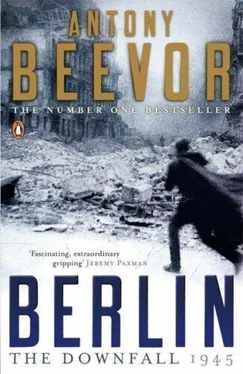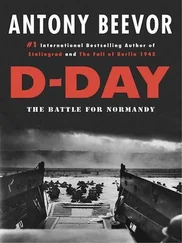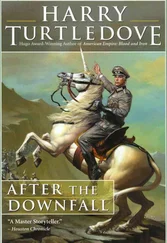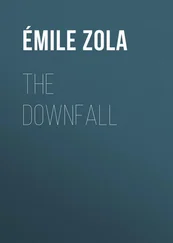Marshal Rokossovsky’s 2nd Belorussian Front attacked north and northwestwards from the Narew bridgeheads on 14 January, the day after Chernyakhovsky. His main task was to cut off East Prussia by heading for the mouth of the Vistula and Danzig. Rokossovsky was uneasy about the Stavka plan. His armies would become detached from both Chernyakhovsky’s attack on Königsberg and Zhukov’s charge westwards from the Vistula.
The offensive against the German Second Army began ‘in weather which was perfect for the attack’, as the corps commander on the receiving end noted regretfully. A thin layer of snow covered the ground and the River Narew was frozen. The fog cleared at noon, and Rokos-sovsky’s armies were soon supported by constant air sorties. Progress was still slow for the first two days, but once again it was the Soviet heavy artillery and the katyusha rocket launchers which made the first breakthroughs possible. Iron-hard ground also made the shells much more lethal, with surface explosions. The snowy landscape was rapidly scarred with craters and black and yellow scorch marks.
On that first evening, General Reinhardt, the commander-in-chief of the army group, telephoned Hitler, then still at the Adlerhorst. He tried to warn him of the danger to the whole of East Prussia if he were not allowed to withdraw. The Führer refused to listen. The next thing Reinhardt’s headquarters received, at 3 a.m., was the order to transfer the Grossdeutschland Corps, the only effective reserve in the region, to the Vistula front.
Reinhardt was not the only field commander to fulminate against his superiors. On 20 January, the Stavka suddenly ordered Rokossovsky to alter the axis of his advance because Chernyakhovsky had been held up. He was now to attack north-eastwards into the centre of East Prussia, not simply seal the region off along the Vistula. Rokossovsky was concerned by the vast gap opening on his left as Zhukov’s armies headed westwards for Berlin, but in East Prussia, this change of direction took German commanders by surprise. On Rokossovsky’s right flank, the 3rd Guards Cavalry Corps moved rapidly over the frozen landscape and entered Allenstein at 3 a.m. on 22 January. On his left, Volsky’s 5th Guards Tank Army advanced rapidly towards the city of Elbing beside the estuary of the Vistula. Part of the leading tank brigade entered the city on 23 January, having been mistaken for German panzers. A violent and chaotic skirmish broke out in the city centre, and they were forced out. The main body of the army bypassed the city and carried on to the shore of the great lagoon, the Frisches Haff. East Prussia was virtually cut off from the Reich.
Although the German armed forces had expected the assault on East Prussia for several months, disorganization and uncertainty reigned in towns and villages. In rear areas the hated military police, the Feldgend-armerie, exerted a harsh order. The Landsers called them ‘chain-hounds’ because the metal gorgette which they wore on a chain round the neck looked like a dog collar.
On the morning of Chernyakhovsky’s attack, 13 January, a leave train bound for Berlin was halted in a station by Feldgendarmerie. They bellowed orders that all soldiers belonging to divisions whose numbers they were about to call were to get out and form up immediately. The soldiers departing on leave, many of whom had not seen their families for two years at least, sat clenched, praying that their division would not be called. But almost all had to descend and line up in ranks on the platform. Anyone who failed to report faced execution. A young soldier, Walter Beier, was one of the few to be spared. Barely daring to believe his luck, he continued on the journey to his family near Frankfurt an der Oder. But he was to find himself facing the Red Army closer to home than he had ever imagined.
The man most to blame for the chaos was Gauleiter Erich Koch, a Nazi leader already infamous for his rule as Reich’s Commissar for the Ukraine. Koch was so proud of his brutality that he does not appear to have objected to his nickname, ‘the second Stalin’. Completely imbued with the Hitlerian obstinacy of fixed defence, Koch had forced tens of thousands of civilians into digging earthworks. Unfortunately, he failed to consult army commanders on where they wanted them. He had also been the first to dragoon boys and old men into the Volkssturm militia, the Nazi Party’s most flagrant example of useless sacrifice. But worst of all, Koch had refused to countenance evacuation of the civil population.
He and his local Nazi Party chiefs, having forbidden the evacuation of civilians as defeatist, then slipped away themselves without warning anybody when the attack came. The consequences were appalling for the wives, daughters and children who tried to escape too late across a landscape a metre deep in snow and temperatures down to minus twenty Celsius. A number of women farm workers, however, remained voluntarily, convinced that they would just be working under new masters and that little would change.
The distant thunder of artillery when the offensives began created terrible fear in the isolated farms and villages of the mainly flat and forested East Prussian landscape. Women in East Prussia had heard of the atrocities at Nemmersdorf the previous autumn, when some of Chernyakhovsky’s troops invaded East Prussia at the end of the headlong advance in the summer of 1944. They may well have seen in a local town’s Kino the terrible newsreel footage of sixty-two raped and murdered women and young girls. Goebbels’s propaganda ministry had rushed cameramen to the front to record the atrocity and exploit it to the maximum. Yet there still seemed to be little idea of the degree of horrors in store for them. The most prevalent for girls and women of all ages was gang rape.
‘Red Army soldiers don’t believe in “individual liaisons” with German women,’ wrote the playwright Zakhar Agranenko in his diary when serving as an officer of marine infantry in East Prussia. ‘Nine, ten, twelve men at a time — they rape them on a collective basis.’ He later described how German women in Elbing, in a desperate attempt to seek protection, offered themselves instead to Soviet marine infantrymen.
The Soviet armies advancing in huge, long columns were an extraordinary mixture of modern and medieval: tank troops in padded black helmets, their T-34S churning up the earth as they dipped and rolled with the ground, Cossack cavalrymen on shaggy mounts with loot strapped to the saddle, Lend-Lease Studebakers and Dodges towing light field guns, open Chevrolets with tarpaulin-covered mortars in the back and tractors hauling great howitzers, all eventually followed by a second echelon in horse-drawn carts. The variety of characters among the soldiers was almost as great as their military equipment. There were those who saw even young German boys as embryo SS men and believed that they should all be killed before they grew up and invaded Russia again, and there were those who spared children and gave them something to eat. There were freebooters who drank and raped quite shamelessly, and there were idealistic, austere Communists and members of the intelligentsia genuinely appalled by such behaviour. The writer Lev Kopelev, then a political officer, was arrested by SMERSH counterintelligence for having ‘engaged in the propaganda of bourgeois humanism, of pity for the enemy’. Kopelev had also dared to criticize the ferocity of Ilya Ehrenburg’s articles.
The initial advances of Rokossovsky’s armies were so rapid that the German authorities in Königsberg sent several refugee trains to Allenstein unaware that it had been captured by the 3rd Guards Cavalry Corps. For the Cossacks, the refugee trains were ideal concentrations of women and booty falling into their hands.
Читать дальше











